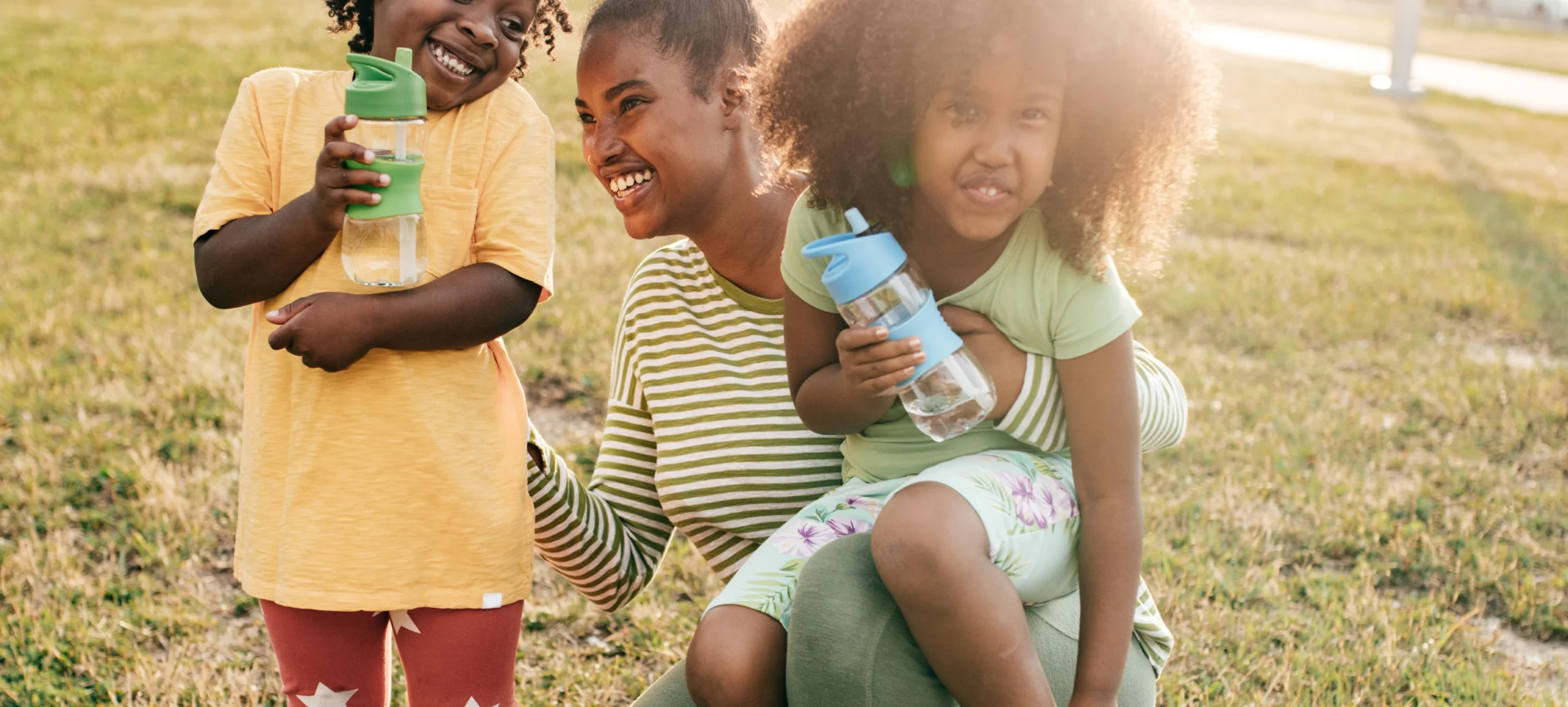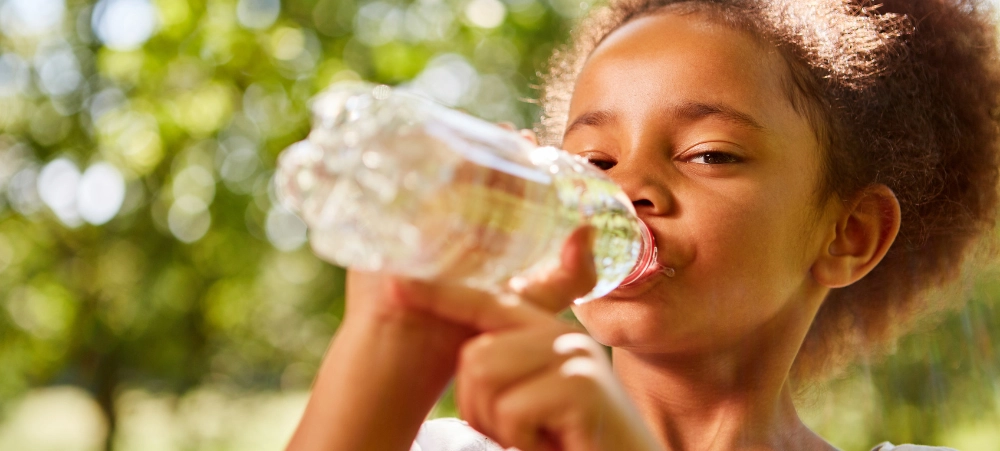Ensuring that children maintain proper hydration is crucial for their overall health and development. Water plays a vital role in numerous bodily functions, including temperature regulation, digestion, and cognitive performance. Despite its importance, many children do not consume adequate amounts of water daily, leading to potential health risks. This article delves into the significance of hydration for growing children, the recommended daily water intake, the consequences of dehydration, and practical strategies to encourage healthy drinking habits.
The Role of Water in Children’s Health
Water is indispensable for various physiological processes that are especially critical during a child’s growth years:
- Cellular Functions: Water is essential for transporting nutrients to cells and removing waste products.
- Temperature Regulation: Adequate hydration helps maintain body temperature through sweating and respiration.
- Joint and Muscle Health: Water lubricates joints and aids in muscle function, which is vital for active children.
- Cognitive Performance: Proper hydration has been linked to improved concentration, memory, and overall cognitive function.
Recommended Daily Water Intake for Children
The amount of water a child needs can vary based on age, activity level, and environmental factors. While individual requirements may differ, general guidelines suggest:
- Toddlers (1-3 years): Approximately 4 cups (32 ounces) per day.
- Young Children (4-8 years): Around 5 cups (40 ounces) daily.
- Older Children and Adolescents (9-13 years): Between 7 to 8 cups (56-64 ounces) each day.
- Teenagers (14-18 years): About 8 to 11 cups (64-88 ounces) daily.
These recommendations include water from all sources, such as beverages and food. It’s important to note that active children or those in hot climates may require additional fluids to stay adequately hydrated.
Consequences of Inadequate Hydration
Failure to maintain proper hydration can lead to dehydration, which poses several health risks:
- Mild Dehydration: Symptoms include thirst, dry mouth, decreased urine output, and darker urine.
- Moderate Dehydration: Signs encompass increased heart rate, dry skin, fatigue, and dizziness.
- Severe Dehydration: This serious condition can manifest as rapid breathing, sunken eyes, low blood pressure, and, in extreme cases, unconsciousness. Immediate medical attention is required.
Children are more susceptible to dehydration than adults due to their higher body water content and metabolic rate. Factors such as fever, vomiting, diarrhoea, and excessive sweating can exacerbate fluid loss.
Strategies to Promote Healthy Hydration Habits
Encouraging children to develop regular drinking habits is essential for preventing dehydration and promoting overall health:
- Lead by Example: Children often mimic adult behaviours. Demonstrating regular water consumption can encourage them to do the same.
- Make Water Accessible: Provide children with reusable water bottles and ensure they have access to water throughout the day, both at home and school.
- Infuse Flavour Naturally: Adding slices of fruits like lemon, cucumber, or berries can make water more appealing without adding sugars.
- Set Reminders: Use timers or apps to remind children to drink water regularly, especially during playtime or study sessions.
- Educate on Benefits: Teach children about the importance of hydration in a way they can understand, emphasising how it helps them feel and perform better.
- Incorporate Hydrating Foods: Include water-rich foods in their diet, such as watermelon, oranges, cucumbers, and strawberries, to boost overall fluid intake.
- Limit Sugary Beverages: Encourage water as the primary beverage choice, reducing reliance on sodas and juices that can contribute to dehydration.
Addressing Challenges in Maintaining Hydration
Despite best efforts, ensuring children drink enough water can be challenging:
- Parental Concerns: A survey revealed that 70% of parents feel guilty about their children not drinking enough water, with 36% struggling to keep them hydrated during summer months.
nypost.com - Children’s Preferences: Some children may resist drinking plain water, preferring flavoured or sugary drinks. Introducing naturally flavoured water or fun drinking cups can make hydration more appealing.
- Busy Schedules: Active lifestyles and structured routines can lead to overlooked hydration. Integrating water breaks into daily activities can help establish consistent habits.
Recognising and Managing Dehydration
Early identification of dehydration is crucial for prompt intervention:
- Signs to Watch For: Thirst, dry lips, reduced urination, lethargy, and irritability are common indicators.
- Immediate Actions: For mild dehydration, encourage the child to sip water or an oral rehydration solution (ORS). ORS contains electrolytes like sodium and potassium, essential for restoring fluid balance.
verywellhealth.com - When to Seek Medical Help: If symptoms escalate to rapid breathing, sunken eyes, or unconsciousness, seek emergency medical attention promptly.
Conclusion
Hydration plays a pivotal role in the health and development of growing children. By understanding the importance of adequate fluid intake and implementing practical strategies, parents and caregivers can foster healthy hydration habits that support children’s physical and cognitive well-being. Proactive measures, education, and attentive monitoring are key to ensuring children thrive in their daily activities.
Sources
- Verywell Health – How Much Water Should You Drink a Day?
- Verywell Health – Signs of Dehydration in Kids
- Verywell Health – Oral Rehydration Solution
- New York Post – Survey Reveals What 70% of Parents Feel Guilty Over
- American Academy of Pediatrics – Hydration and Children
- CDC – Daily Water Intake for Kids
- Harvard School of Public Health – The Importance of Water for Health
- Mayo Clinic – Water: How Much Should You Drink Every Day?
We understand that there are many aspects that encompass a Mother, Father or Child and strive toward providing resources and services that accommodates this.
Our content is aimed to inform and educate families on issues starting from pregnancy through to the challenges of the teen-age years.
- Say Hello to the Ultimate Holiday Brunch Bite - December 17, 2025
- Tiny Toons Looniversity Returns: Meet the Voice Behind Plucky and Hamton! - December 12, 2025
- From Pain to Possibility: Panado®’s New Marketing Campaign, Highlights The Joy Of Pain Relief - December 10, 2025






1 thought on “The Importance of Hydration for Growing Kids”
very informative